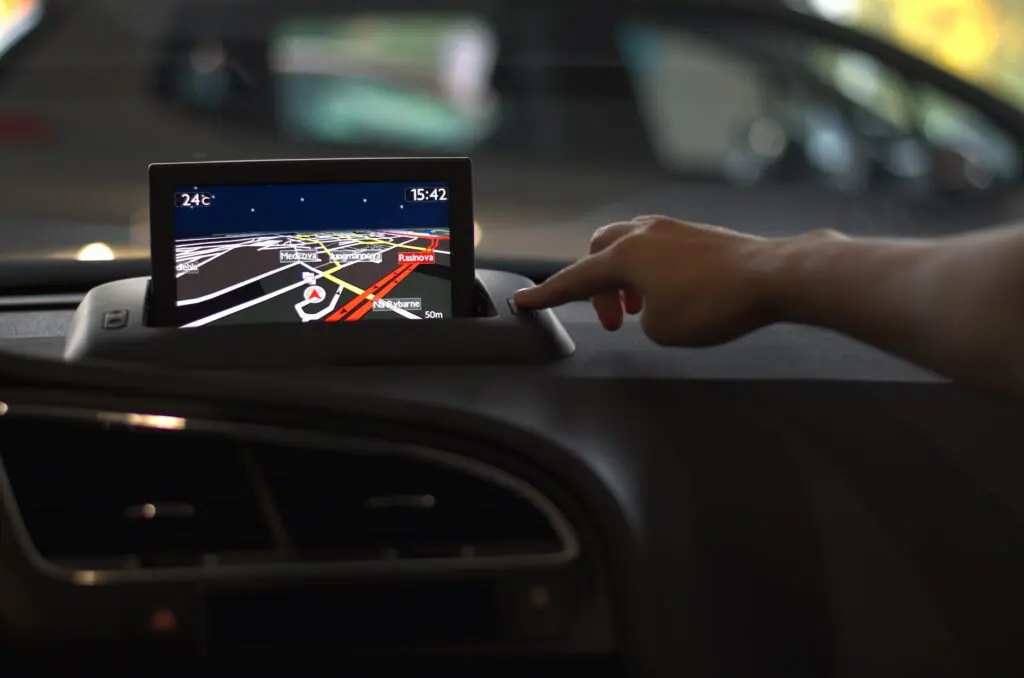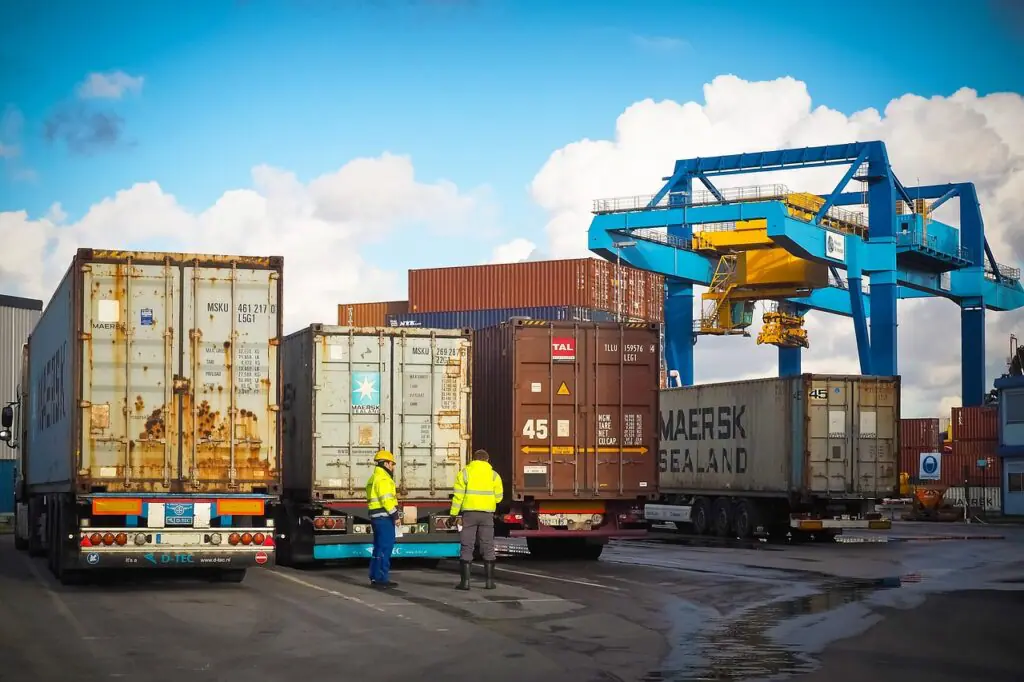Introduction
The integration of GPS technology into various industries has led to significant improvements in efficiency, security, and decision-making processes.
GPS trackers have evolved beyond navigation, finding professional applications in diverse sectors such as auto finance, fleet management, asset management, smart delivery, and logistics.
In this blog, we will delve into these professional applications, shedding light on how GPS trackers are reshaping their respective fields.

Auto Finance: Enhancing Asset Management and Security
GPS trackers in auto finance serve as invaluable tools that provide real-time tracking and monitoring of financed vehicles.
They can act as a powerful deterrent against theft and unauthorized use of financed vehicles.
In the event of non-payment or the need for repossession, these devices provide a means to quickly and precisely locate the vehicle, reducing the risk of financial loss for the lender.
Besides, when a borrower defaults on their auto loan, GPS trackers streamline the repossession process.
Lenders can pinpoint the exact location of the vehicle, making the repossession process more efficient, cost-effective, and less prone to conflicts.
All in all, the integration of GPS trackers into auto finance operations has revolutionized the industry, making auto finance more efficient and secure for both lenders and borrowers.

Fleet Management: Optimizing Operations
The application of GPS trackers in fleet management represents a significant advancement in how businesses oversee and optimize their vehicle operations.
Firstly, the real-time tracking of the system continuously monitors the location of each vehicle in a fleet.
This real-time tracking enables fleet managers to have a comprehensive view of their vehicles’ whereabouts, which is particularly valuable for industries such as transportation, logistics, and delivery services.
Secondly, by analyzing the data provided by GPS trackers, fleet managers can identify the most efficient routes for their vehicles.
This leads to reduced fuel consumption, shorter delivery times, and lower operational costs.
Besides, GPS trackers can track driver behavior, including speed, acceleration, and braking patterns.
By monitoring these factors, fleet managers can enforce safer driving practices, reducing the risk of accidents and related expenses.
Last but not least, tracking speed and mileage contributes to fuel savings. By optimizing driving habits and routes, businesses can significantly reduce their fuel consumption, which is a substantial cost-saving measure.
All in all, GPS trackers can contribute to a more sustainable and environmentally conscious approach to transportation and logistics.

Asset Management: Maximizing Control
In asset management, GPS trackers have revolutionized how organizations oversee and protect valuable assets, ensuring assets are secure, efficiently utilized, and properly maintained.
GPS trackers continuously monitor the location of assets, allowing organizations to know precisely where their valuable equipment or items are at any given moment.
This is crucial for asset protection, particularly in industries where theft or misplacement is a concern.
In addition, the presence of GPS trackers acts as a strong deterrent against theft.
In case of asset theft, real-time tracking data helps law enforcement and security personnel quickly recover stolen items, reducing financial losses.
In the unfortunate event of theft, GPS trackers facilitate the quick and precise recovery of stolen assets.
This is particularly valuable for high-value items or equipment with significant financial implications.
The integration of GPS trackers into asset management has brought about enhanced security, more efficient utilization of resources, and data-driven decision-making.
Adopting GPS tracking technology can help protect valuable assets, improve operational efficiency, and ultimately reduce costs and risks.

Smart Delivery and Logistics: Streamlining Operations
In the realm of delivery and logistics, GPS trackers are also indispensable. GPS trackers enable delivery and logistics companies to plan the most efficient routes for their vehicles.
By considering real-time traffic data, they can reduce delivery times, fuel consumption, and operational costs.
For businesses transporting sensitive or high-value goods, GPS trackers are used to monitor cargo conditions.
This is vital for industries such as pharmaceuticals or the transportation of perishable products.
Besides, businesses can use GPS trackers to schedule deliveries more efficiently, ensuring that vehicles are dispatched at the right time and location, reducing idle time and delivery delays.
Two-Wheeled Electric Vehicles
GPS trackers have several crucial applications in two-wheeled electric vehicles.
Firstly, GPS trackers play a pivotal role in preventing theft.
In the unfortunate event of the vehicle being stolen, the tracker provides real-time location data, enabling owners and law enforcement to track and recover the vehicle quickly.
Secondly, GPS trackers can enable remote monitoring of the vehicle’s location and status.
Owners can access real-time information about the two-wheeled electric vehicle’s whereabouts and even remotely disable the engine in case of theft or unauthorized use.
Besides, GPS trackers provide an additional layer of security, allowing owners to set up geofencing alerts.
Geofencing establishes virtual boundaries, triggering alerts if the vehicle moves beyond defined geographic limits, ensuring its safety.
In summary, the integration of GPS trackers in two-wheeled electric vehicles significantly enhances security, and offers remote monitoring capabilities, thus improving the overall ownership experience and operational efficiency.
Smart Sanitation
Sanitation is a critical aspect of public health and infrastructure.
The integration of GPS trackers into sanitation systems has opened the door to smart solutions that streamline operations, enhance efficiency, and improve overall sanitation management.
One of the primary applications of GPS trackers in smart sanitation lies in optimizing waste collection routes.
With real-time tracking and data analysis, waste management companies can efficiently plan and execute collection routes.
These trackers help identify the most time-efficient and cost-effective routes, reducing fuel consumption and emissions.
Secondly, smart sanitation solutions powered by GPS technology contribute to a reduction in the environmental impact of waste management operations.
By optimizing routes and minimizing fuel consumption through efficient planning,
GPS trackers play a crucial role in lowering carbon emissions and promoting environmental sustainability.
Thirdly, the data collected through GPS trackers presents a wealth of information that can be used for informed decision-making.
Analysis of this data can reveal patterns, peak collection times, and areas with higher waste generation, enabling authorities to adapt and optimize their sanitation services for maximum efficiency.
Smart Campus
GPS trackers play a pivotal role in shaping the modern campus environment.
One of the most vital applications of GPS trackers in a Smart Campus is bolstering security measures.
Integrating trackers into campus resources such as shuttle services, security vehicles, and equipment allows for real-time tracking.
In case of emergencies or security threats, these trackers offer precise location data, enabling swift responses and ensuring the safety of individuals on campus.
Second, GPS trackers can optimize transportation services within the campus.
Whether it’s tracking university shuttles to provide real-time schedules or guiding students to available parking spaces, these trackers streamline movement, reducing wait times and enhancing overall transportation efficiency.
Third, with GPS trackers, the management of campus resources becomes more efficient.
Tracking equipment and assets across the campus ensures better utilization and prevents misplacement or theft.
It also facilitates predictive maintenance, optimizing the lifespan of university assets.
Overall, the Smart Campus powered by GPS trackers is not just about navigation; it’s a transformative force that aims to create an ecosystem where learning, safety, and efficiency converge to redefine the campus experience for all its stakeholders
Pet Management
For pet owners, ensuring the safety and well-being of their furry companions is a top priority.
With the advent of GPS technology, pet management has undergone a significant transformation.
First, one of the primary applications of GPS trackers is ensuring the safety and security of our pets.
These trackers, attached to a collar or harness, offer real-time location monitoring.
In case our pets wander off or get lost, the GPS technology aids in swiftly locating and retrieving them, providing peace of mind for pet owners.
Second, GPS trackers play a crucial role in preventing pets from getting lost.
With the ability to set virtual boundaries or geofences, pet owners receive alerts when their pets move beyond the designated safe zones.
This feature helps in preventing runaway pets and acts as a proactive measure to locate them before they stray too far.
Third, some GPS trackers offer additional features that monitor pet activity levels and health.
They can track exercise routines, sleep patterns, and even vital signs, allowing owners to ensure their pets are active and healthy.
Such insights can be invaluable for proactive pet healthcare.
All in all, GPS trackers have revolutionized pet management, providing pet owners with a reliable means of ensuring their beloved companions’ safety and well-being.
Conclusion
The professional applications of GPS trackers in auto finance, fleet management, asset management, and smart delivery and logistics have reshaped these industries.
They offer precise location data, enhance security, improve operational efficiency, and enable informed decision-making.
As technology continues to advance, we can expect GPS trackers to play an even more significant role in enhancing productivity and reliability across various professional domains.



